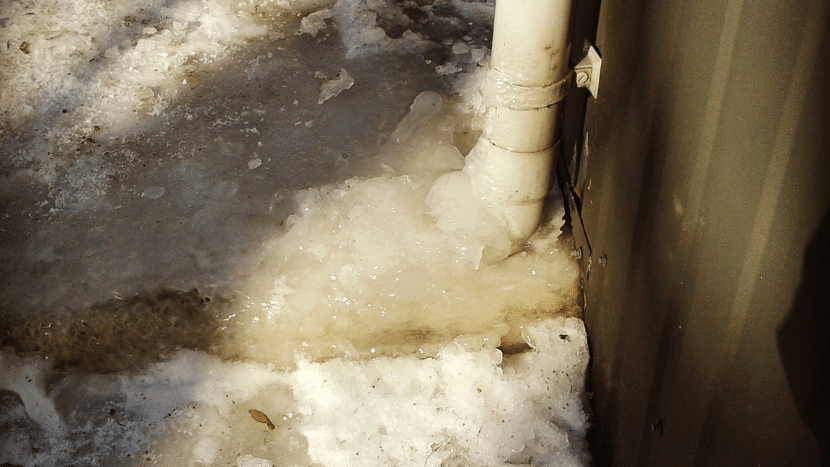ABOUT THE AUTHOR
Max Rose
Max Rose is the owner of Four Seasons Plumbing, a plumbing company in Asheville, North Carolina.

While most of North Carolina experiences relatively mild winters, the highlands are clear exceptions. The higher elevations in the Asheville region translate into many a bitterly cold winter day. It’s no coincidence that the higher reaches of the mountains here feature trees and plants that normally grow in subarctic zones.
The very same conditions that can produce a winter wonderland of snow-draped evergreens and frozen waterfalls can also pose some severe threats to homes. One of the chief among them is frozen and burst pipes. That’s a problem no homeowner wants to discover, yet it’s a reality during the western North Carolina winter.
Although you can’t change the fact of severe cold during our winters, there are steps you can take to keep lines from freezing and to thaw pipes that do freeze.
If you’ve never experienced a frozen or burst pipe before, you might not be familiar with how serious a problem this can be.
As water freezes, it expands, and when it freezes inside pipes, it creates pressure that may overwhelm them and cause cracking or bursting. Outside pipes such as spigots, water sprinkler lines, and swimming pool supply lines are the most susceptible to freezing and bursting, but inside lines can also be at risk during times of extreme cold, especially if you’re unfortunate enough to suffer a power outage or heating system breakdown at the same time,
When exterior pipes burst, there often isn’t much risk of structural damage, and the solution is usually to cut off the water supply and call for a repair. Inside, however, there can be a great deal of damage as thawed water sprays or leaks, potentially causing water damage and mold and mildew growth that can cost thousands of dollars to repair.
So let’s look at some ways to prevent pipes from freezing in the first place.
Despite your preventative efforts, you still might end up with a frozen pipe, usually most noticeable when you turn a faucet on and no water comes out. There are 3 steps you can take: location, opening, and warming.
Whether you’re excited or fretting over winter’s arrival, the reality is that it’s just around the corner. Now is the perfect time to start prepping your home for the colder temperatures to come. During North Carolina winters, frozen pipes are a serious risk that Asheville homeowners need to be concerned about.
When the temperature is low, any water that’s sitting in your pipes can easily freeze solid, exerting thousands of pounds of pressure as the solid water expands. This can easily burst your pipes, causing thousands of dollars of damage.
The pipes in your home that are most likely to freeze in the winter are located in unheated areas like garages and crawl spaces, as well as locations that are up against an outside wall.
Fortunately, you can protect your pipes from freezing and avoid costly damage. Here are some ways to help prevent frozen pipes.
“During the current situation, that means that we’re taking every step to ensure that the health and safety of our customers and Four Seasons team members is our top priority.”
Here are some steps that you can take to prevent frozen pipes in your Asheville home during the winter.
By keeping your garage door closed whenever possible, you’ll keep the garage interior warmer and prevent water in the pipes inside from freezing into ice.
This insulating measure will help keep temperatures up in the crawlspace, lowering the probability of a frozen pipe.
Turning down the heat at night can save money, but any money you’ll save by doing so will pale in comparison to the money you’ll lose if you need repairs for a burst pipe. It’s worth the money to keep your home heated to at least 55 degrees Fahrenheit at all times.
Keep your home at 55 degrees or higher, even when you and your family are gone during the day. Again, keeping your home heated will prevent frozen pipes.
If you’re going to be out of time for a few days or weeks during the winter, go ahead and shut off your main water valve to avoid frozen pipes.
Bring them inside, and never try to use antifreeze in these or any household areas.
For frozen water line repair or dealing with frozen pipes in Asheville, NC, and the surrounding region, it’s best to leave the job to a qualified expert like Four Seasons Plumbing. We’re fully certified and insured, and our knowledgeable, courteous technicians have the tools and training to get the job done right and have things back to normal as soon as possible. Because we know that plumbing emergencies sometimes occur at the worst possible times, we also offer emergency plumbing services for those times that it can’t wait, and a burst pipe is usually one of those times.
If you have any questions or concerns about your plumbing system this upcoming winter, please do not hesitate to call Four Seasons Plumbing.
We serve Asheville and surrounding areas with reliable service 24/7. Give us a call at to get an estimate or want to schedule a service, 828-585-3215 or complete our online request form.
ABOUT THE AUTHOR
Max Rose is the owner of Four Seasons Plumbing, a plumbing company in Asheville, North Carolina.